During the pandemic, 13% of people reported increasing or beginning to use substances to cope with stressors. There is a deep connection between substance use disorders and your emotions.
Emotional pain can lead you to use drugs to cope. However, on the other side of things, substance abuse can also lead to emotional damage.
It eventually becomes a vicious cycle. You use drugs to address your emotional pain and become addicted to drugs.
That substance dependence then leads to emotional damage. How do you break the cycle? Keep reading to learn more about the impact and how treatment can help.
How Drug Use Rewires Your Brain
Drug use not only impacts your physical health but also profoundly affects how your brain functions.
When you abuse drugs, the substances directly interact with your brain’s neurotransmitters. This can alter how they usually function. This rewiring of your brain can have long-lasting consequences.
The Reward System of Your Brain
Drugs can hijack the reward system in your brain. Typically, activities like eating or spending time with loved ones trigger dopamine release. This is a neurotransmitter associated with pleasure and motivation.
However, drugs flood the brain with an excessive amount of dopamine all at once, creating an intense feeling of euphoria. Over time, this flood of dopamine causes changes in the reward circuitry.
Communication Pathways
Drug use affects the communication between different regions of your brain. The chemicals found in drugs disrupt neural pathways responsible for decision-making and impulse control.
Your Brain Stops Naturally Producing Certain Neurotransmitters
When drugs are consistently present in the brain, it can cause changes in the production of certain neurotransmitters. For example, if an individual regularly uses opiates, their brain may stop producing endorphins.
What Does Addiction Do to Your Emotions?
Drug addiction can rewire your brain and wreak havoc on your emotional well-being. But how does this impact your emotions?
Intensify Negative Emotions
Drugs can intensify negative emotions such as anxiety, depression, and anger. They may provide temporary relief initially but ultimately exacerbate these feelings over time.
This rollercoaster of heightened emotions can lead to increased stress levels. It can also lead to a decreased ability to cope with everyday challenges.
Numbing
Regular substance abuse alters the brain’s chemistry, dampening positive and negative emotions. This numbing effect can make it difficult for individuals to experience joy or connect with others emotionally.
Mood Swings and Instability
Drug addiction frequently contributes to mood swings and instability in one’s emotional state. The constant cycle of seeking drugs, using them, and experiencing withdrawal symptoms when not using them further disrupts emotional stability.
Damage to Relationships
Prolonged drug use may damage crucial relationships in an individual’s life – be it family members or close friends. This can lead to deep feelings of guilt and shame.
The Emotional Impact of Drug Use in the Teen Years
Drugs directly impact the brain’s reward system, flooding it with dopamine and creating a euphoric effect. Over time, however, the brain becomes desensitized to these artificial rewards.
It begins to require higher doses or more potent substances to achieve the same level of satisfaction. This rewiring of the brain not only leads to physical addiction but also disrupts emotional regulation.
As a result of drug use in their formative years, teenagers may experience heightened levels of the following:
- Anxiety
- Depression
- Irritability
- Mood swings
Substance abuse can intensify existing emotional issues or trigger new ones altogether. The constant pursuit of drugs can also lead to social isolation.
The Emotional Impact on Friends and Family
Drug addiction affects not only the person using drugs but also profoundly affects their loved ones. Watching someone you love struggle with addiction can be sad, frustrating, and even traumatic.
Constant Fear and Worry
There’s the constant worry and fear for your loved one’s well-being. Every time they use drugs, you wonder if this could be the time that something goes terribly wrong. The anxiety is unrelenting as you constantly navigate between hope and despair.
Strained Relationships
Drug addiction often leads to strained relationships with friends and family members. People with an addiction may lie, steal, or manipulate to support their drug habit.
This betrayal can cause deep emotional wounds that are difficult to heal. Trust is shattered, and resentment builds up over time.
Powerlessness
Witnessing the physical decline of someone addicted to drugs takes a toll on friends and family members emotionally. Seeing someone’s personality fade away as they prioritize getting high can be devastating.
Instability
Living with someone addicted to drugs often means dealing with unpredictable behavior and mood swings. Drugs alter brain chemistry. This, in turn, impacts emotions and behavior.
The instability caused by this can create a chaotic environment where peace feels like an elusive dream.
Addressing Emotional Damage in Recovery
Seeking help for addiction goes beyond overcoming physical cravings. It also involves addressing the emotional damage that addiction has caused.
In recovery, you’re encouraged to do the following:
- Explore emotions
- Confront past traumas
- Learn healthy coping mechanisms
All of this can help you address triggers and emotional damage caused by addiction.
Therapy
In counseling, people with addiction can explore their behavior and heal emotional wounds. Therapists provide a safe space for individuals to express their feelings without judgment or shame.
Support Groups
People feel validated and understood when they connect with similar experiences. Sharing stories helps to break down isolation and build a sense of community.
Developing Coping Mechanisms
Developing healthier coping mechanisms is essential for managing emotions in recovery. Many people with addiction use drugs to avoid pain and tough emotions.
But this only makes their emotional damage worse in the long run. In recovery, individuals learn alternative ways to cope with stressors.
Rebuild Relationships
In recovery, it’s vital to rebuild relationships damaged by addiction. The support of friends and family can be instrumental on the road to healing emotionally.
Find Help With Recovery Delivered
Drug addiction can cause significant emotional damage to individuals and those around them.
However, you’re not left without hope. With the right recovery plan, you can find healing.
Recovery Delivered is committed to removing barriers to treatment. We provide patient-centric recovery that focuses on evidence-based treatments. Download our app and start treatment today.


